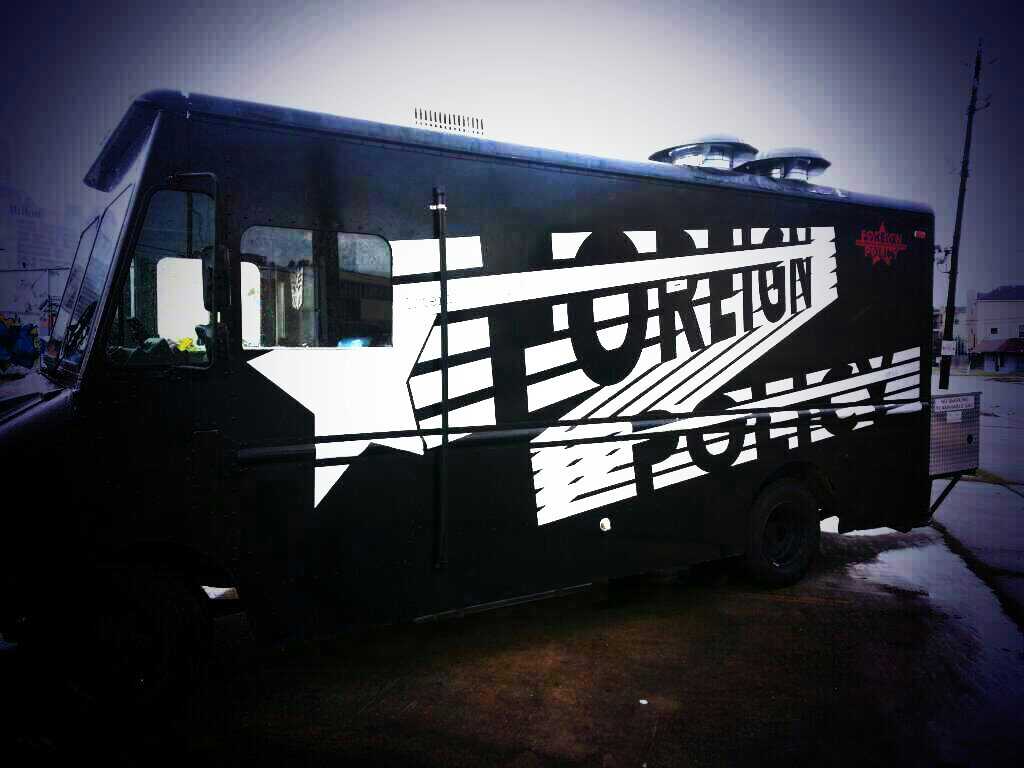Foreign policy food trucks are an innovative and unconventional approach to diplomacy, using food as a bridge to foster understanding, promote cultural exchange, and address global challenges.
This unique diplomatic tool offers a range of benefits, including the ability to connect with diverse audiences, break down cultural barriers, and create a positive and engaging environment for dialogue.
Food Truck Concept and Foreign Policy

The use of food trucks for foreign policy is an unconventional yet innovative approach that has gained traction in recent years. This unique diplomatic tool offers a platform for cultural exchange, dialogue, and relationship-building.
The benefits of food truck diplomacy are multifaceted. Firstly, it allows for direct engagement with foreign audiences, breaking down barriers and creating a more personal and informal setting for interaction. Secondly, food serves as a universal language, transcending cultural and linguistic differences and fostering a sense of camaraderie.
Challenges
However, food truck diplomacy also presents certain challenges. One challenge lies in the logistics of operating a food truck in foreign countries, including compliance with local regulations and cultural sensitivities. Additionally, the visibility and attention generated by food trucks can attract both positive and negative attention, requiring careful planning and security measures.
Successful Initiatives
Despite these challenges, several successful food truck diplomacy initiatives have been implemented. For instance, the “Taco Truck Diplomacy” program launched by the U.S. Department of State has been credited with improving relations between the United States and Mexico. Similarly, the “Food Truck Diplomacy Initiative” organized by the British Council has fostered cultural understanding and dialogue between the United Kingdom and various countries worldwide.
Cultural Diplomacy through Food

Food transcends language and borders, serving as a potent tool for cultural diplomacy. By sharing culinary traditions, nations can bridge cultural gaps, foster understanding, and promote peace.
Food plays a pivotal role in shaping national identity. It embodies the cultural heritage, traditions, and values of a society. When nations share their cuisine, they offer a glimpse into their unique perspectives and way of life.
Case Studies of Food-Based Cultural Exchange Programs, Foreign policy food truck
- Taste of the Middle East: A program that brought together chefs from different Middle Eastern countries to collaborate on a cookbook showcasing the region’s diverse culinary traditions.
- Food for Peace: A United Nations program that uses food as a tool for diplomacy and conflict resolution, providing meals and promoting sustainable agriculture in conflict-ridden areas.
- Global Kitchen: An initiative that organizes culinary events and workshops to promote cross-cultural understanding through food.
These programs demonstrate the transformative power of food in breaking down barriers, fostering empathy, and building bridges between cultures.
Food Security and Diplomacy: Foreign Policy Food Truck
Food security plays a pivotal role in foreign policy, as it intersects with issues of national security, economic development, and humanitarian assistance. Food aid, in particular, has been used as a diplomatic tool to foster international cooperation, resolve conflicts, and promote stability.
Food Aid as a Diplomatic Tool
Food aid can serve as a means of providing humanitarian assistance to vulnerable populations, addressing food shortages and malnutrition. By offering food aid to countries in need, donor nations can demonstrate goodwill, build relationships, and influence policy decisions. However, the use of food aid as a diplomatic tool raises ethical concerns and potential unintended consequences, such as dependency and market distortions.
Food Security Initiatives for International Cooperation
Food security initiatives, such as agricultural development programs and trade agreements, have contributed to international cooperation and conflict resolution. By addressing the root causes of food insecurity, these initiatives can promote economic growth, reduce poverty, and foster stability in conflict-prone regions.
For instance, the Food and Agriculture Organization (FAO) has played a significant role in facilitating food security initiatives, providing technical assistance and promoting sustainable agricultural practices.
Economic Impact of Foreign Policy Food Trucks
Foreign policy food trucks can have a significant impact on local economies. They can create jobs, generate revenue, and promote tourism. In addition, food trucks can help to foster entrepreneurship and economic development in underserved communities.
Job Creation
Foreign policy food trucks create jobs in a variety of fields, including food preparation, customer service, and marketing. A study by the National Restaurant Association found that the restaurant industry employs over 15 million people in the United States. Food trucks are a growing segment of the restaurant industry, and they are expected to create even more jobs in the years to come.
Revenue Generation
Foreign policy food trucks can generate significant revenue for local businesses. A study by the Food Truck Association found that food trucks generate over $2 billion in revenue each year. This revenue can help to support local businesses and create jobs.
Tourism Promotion
Foreign policy food trucks can help to promote tourism by attracting visitors to a particular area. Food trucks can offer unique and authentic dining experiences that are not available at traditional restaurants. This can attract tourists from all over the world.
Challenges and Opportunities

Operating a foreign policy food truck presents unique challenges that require innovative solutions and best practices.
These challenges include cultural sensitivities, logistical hurdles, and financial constraints. However, by embracing diversity, adopting flexible approaches, and leveraging partnerships, these obstacles can be overcome.
Cultural Sensitivities
- Understanding and respecting local customs and dietary restrictions is crucial.
- Engaging with local communities and seeking feedback ensures that the menu and service align with cultural expectations.
Logistics
- Navigating unfamiliar infrastructure, customs regulations, and language barriers requires careful planning and local expertise.
- Establishing partnerships with local businesses and organizations can provide logistical support and cultural insights.
Funding
- Securing funding for foreign policy food truck operations can be challenging.
- Exploring grants, partnerships with non-profits, and crowdfunding can supplement traditional funding sources.
Future Opportunities
The use of food trucks in foreign policy and diplomacy has immense potential for expansion.
- They can serve as mobile platforms for cultural exchange, promoting understanding and dialogue.
- By collaborating with local chefs and food vendors, food trucks can showcase the culinary diversity of different regions.
- Food trucks can also play a role in addressing food security by providing access to nutritious and affordable meals in underserved areas.
FAQ Corner
What is the purpose of a foreign policy food truck?
Foreign policy food trucks are used to engage in diplomacy, promote cultural understanding, address food security, and foster economic development.
How do foreign policy food trucks work?
Foreign policy food trucks operate by serving food from a particular country or region, providing an opportunity for people to experience different cultures and learn about global issues.
What are the benefits of using food trucks for diplomacy?
Food trucks offer a unique and engaging way to connect with diverse audiences, break down cultural barriers, and create a positive and welcoming environment for dialogue.
